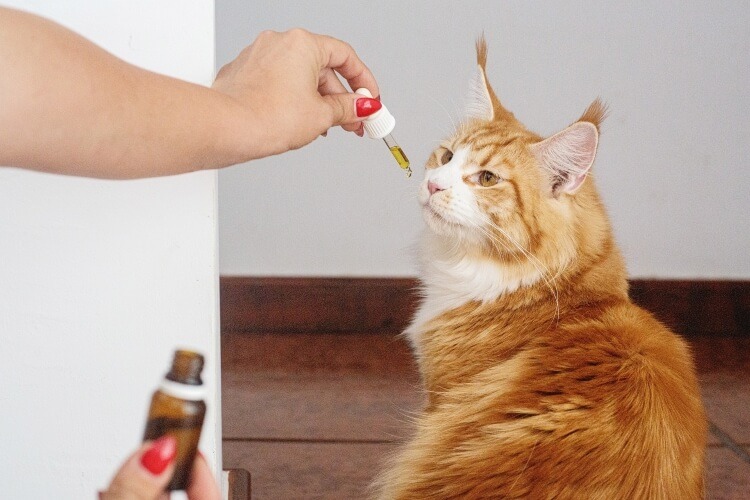If you’re a cat owner, nothing brings more joy than seeing your four-legged friend running around the park and having as much fun as they could have. But while there’s so much to love about our canine companions, it is important to remember that they need regular vet check-ups to stay healthy and happy.
By investing in routine exams for our furry friends, we can help ensure their quality of life remains top-notch throughout their lifetime.
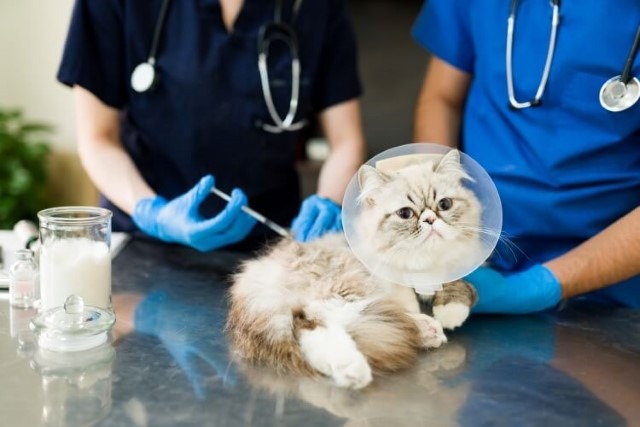
In this blog post, I will discuss why regular vet visits are essential for cats and how you can ensure yours get the health care they deserve. We will also cover signs that indicate it’s time for a vet visit, the benefits of regular vet visits, what to expect during a vet check-up, and tips for keeping your cat healthy between visits.
So, without further ado, let’s examine why regular vet visits are important.
Why are Regular Vet Check-Ups Important for Your Furry Friend?
Having a furry friend in your home is an incredible experience. Cats bring unconditional love and can provide you with the companionship you need when times are tough. Taking your cat for regular vet check-ups is important to keep them healthy and happy.
Routine veterinary visits help ensure your cat receives the best care available. During a check-up, your veterinarian will examine your cat for any signs of illness or injury and recommend an appropriate treatment plan.
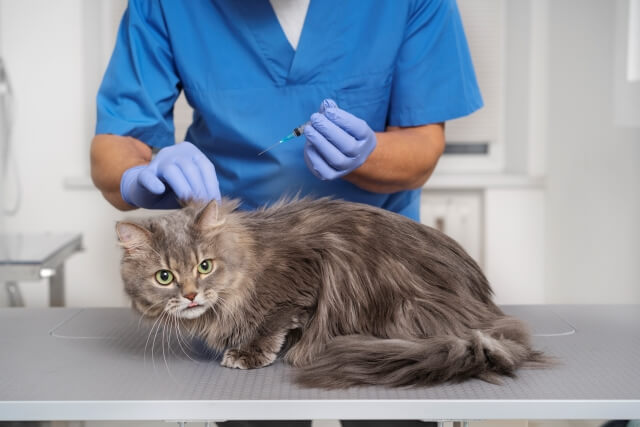
Additionally, regular examinations allow your veterinarian to get a clearer picture of your cat’s overall health and provide preventive care tailored to their needs.
Vet check-ups are also crucial for keeping your cat up to date on vaccinations. Vaccinating cats helps protect their health by preventing the spread of potentially fatal diseases. Vaccines can even help lessen the severity of any illnesses that may be contracted, which can extend your cat’s life expectancy and reduce medical costs in the long run.
Finally, check-ups are an important opportunity for professional advice about your cat’s health and behavior. Your veterinarian can provide personalized recommendations on diet, exercise, or any other lifestyle changes that may improve your cat’s well-being.
You can also ask questions and discuss concerns about your furry friend’s health.
Signs of cat That Indicate It’s Time For A Vet Visit?
Cat are wonderful companions and sources of joy but require much care. It is important to be aware of signs that indicate something may be wrong with your cat, and it is time for a trip to the vet.
Let’s take a look at some of the signs that may indicate it’s time for a vet visit:
1: Unexplained weight loss or gain
Unexplained weight loss or gain can indicate an underlying health issue, so it is important to keep track of your cat’s weight and note if there are sudden changes. It could indicate something serious, including infection, diabetes, cancer, or a hormonal imbalance.
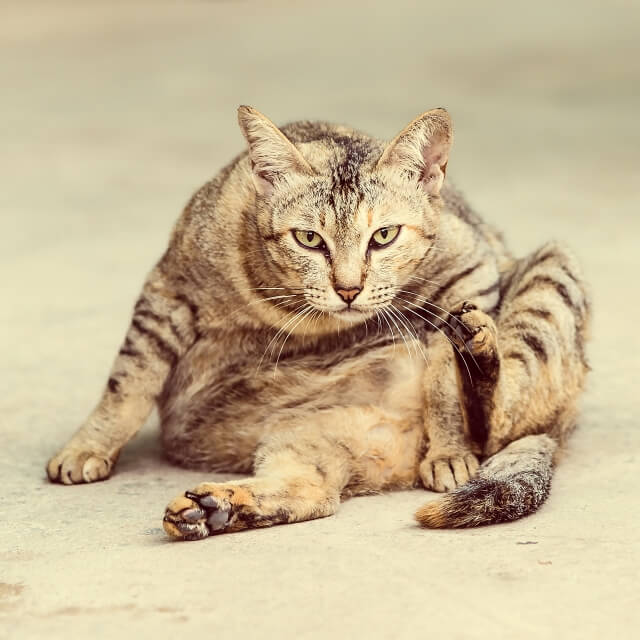
2: Changes in appetite
A noticeable change in your cat’s appetite can indicate illness. If your cat is suddenly eating much less or more than usual, it may be time to take them to the vet for a check-up. This could indicate an underlying health issue such as a metabolic disorder, infection, or kidney failure.
3: Coughing and sneezing
Coughing and sneezing are common signs of illness in cat. If your cat is coughing or sneezing regularly, it may be time for a trip to the vet. This could indicate an infection such as kennel cough, heartworm, or even something more serious like feline leukemia or distemper.
4: Changes in energy levels
If you notice a sudden decrease in your cat’s energy level, it could indicate an underlying health issue. A vet trip can help diagnose potential problems and get your cat feeling better. Possible causes include infection, aging, or chronic illness such as kidney disease.
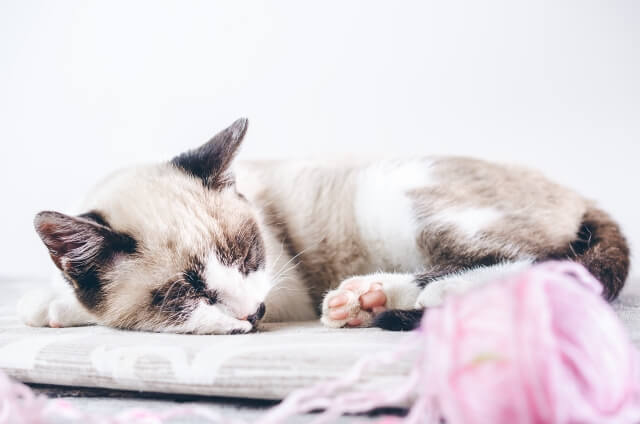
By being aware of any changes in your cat’s behavior, you can ensure they stay healthy and happy. If you notice any concerning signs, you should make an appointment with the vet immediately. That way, any potential health issues can be identified and addressed quickly.
Benefits of Regular Vet Visits?
Regular vet visits help identify potential health issues before they become more serious and provide preventive care for existing issues. Here are some of the benefits of regular vet visits:
1: Early Detection
Regular vet visits allow your veterinarian to detect potential health issues early on. Your vet can perform exams and diagnostic tests to identify any underlying illnesses or abnormalities that may not be visible to the naked eye. Early detection gives you greater peace of mind and allows swift treatment if needed.
2: Vaccinations
Regular vet visits also allow you to get your cat up-to-date on their vaccinations. Vaccines are important in preventing common illnesses and diseases and can help keep your cat healthy and safe from preventable issues. Your veterinarian can advise you on which vaccines may benefit your cat.

3: Health Check-Ups
At regular vet visits, your veterinarian can assess your cat’s overall health and make sure their weight, diet, and exercise routines are all in line. Your vet can also check for potential issues, such as lumps or other physical abnormalities that may need further investigation.
4: Parasite Control and Prevention
Parasites can be a major problem for the cat, and regular vet visits are an important part of controlling them. Your veterinarian will check your cat for fleas, ticks, mites, and other parasites that may be present and provide appropriate treatment as needed. In addition, they can advise on preventative measures to keep your cat parasite-free.
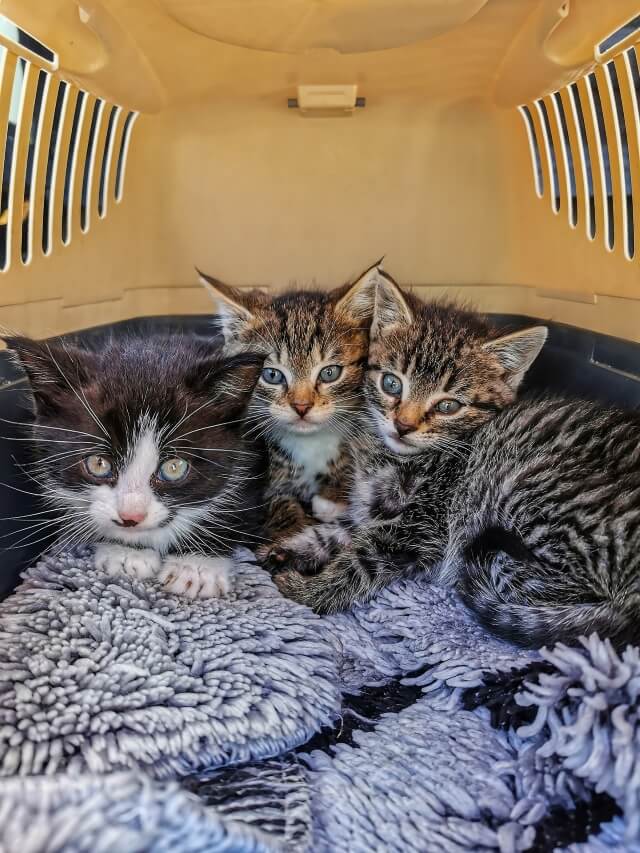
Regular vet visits are a great way to ensure your cat’s health and well-being, and allow for early detection of potential issues. With regular check-ups, you can enjoy the peace of mind of knowing that your beloved cat is in tip-top shape.
What to Expect During a Vet Check-up of a cat?
A vet check-up typically consists of several steps. Each step provides your vet with important information about your cat’s health and well-being. Here is a quick overview of what to expect during a vet check-up:
1: Physical Exam
During the physical exam, your vet will inspect your cat’s body for abnormalities, such as lumps, bumps, or other signs of illness. They will also look at their eyes, ears, teeth, and mouth (if applicable), feel around the abdomen, and check the joints for signs of arthritis.
2: Vitals
A vet check-up also involves checking your cat’s vital signs, including their temperature, heart rate, and respiratory rate. These measurements will help your vet to get a general idea of how your cat is doing from a health perspective.
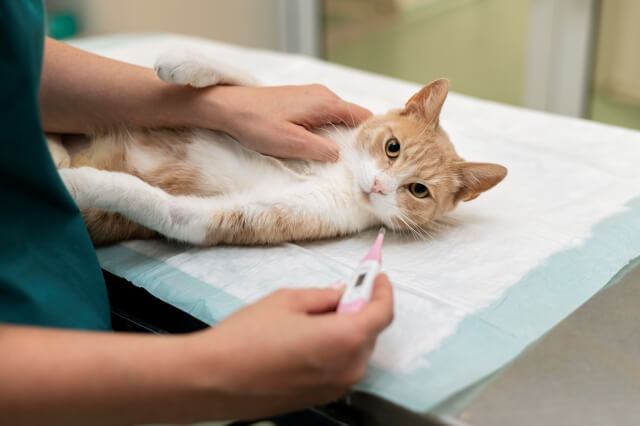
3: Vaccinations
During the appointment, your vet may recommend that your cat receives certain vaccinations. Vaccinations help protect your cat from several illnesses, including rabies and distemper.
4: Lab Tests
Depending on the reason for your visit, your vet may take a blood or urine sample from your cat as part of their evaluation. These tests can reveal important information about underlying conditions affecting your cat’s health.
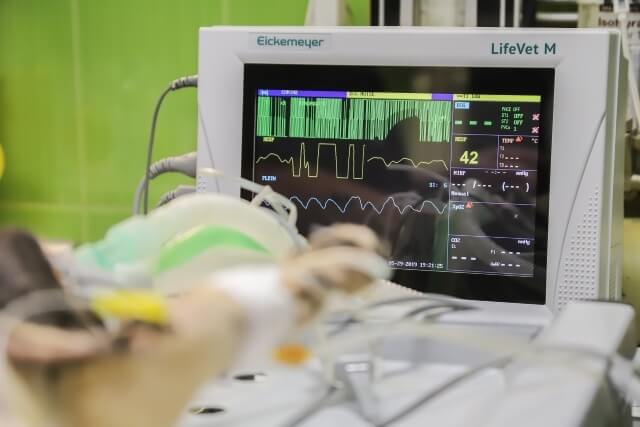
Ultimately, the goal of any vet check-up is to ensure that your cat is healthy and happy. If you have any questions or concerns during the appointment, don’t hesitate to ask! Your vet will be more than happy to answer them and provide you with advice on how best to care for your furry friend.
Tips For Keeping Your Cat Healthy Between Visits?
In addition to regular vet check-ups, you can do a few things to keep your cat healthy between visits. Here are some tips for keeping your cat in peak condition:
1: Provide a Healthy Diet
Feeding your cat a balanced diet is essential for their health and well-being. Choose high-quality cat food, and speak with your vet about the correct amount to give your cat daily.

2: Exercise Regularly
Exercise is important for cats and cats, as it helps keep their muscles strong and joints flexible. Take your cat for regular walks or play with them in the backyard for at least 15 minutes daily.
3: Provide Mental Stimulation
It’s also important to stimulate your cat mentally by providing them with toys and activities that challenge their minds. Taking the time to play with your cat for several minutes daily will help ensure they stay happy and healthy.
4: Provide Proper Grooming
Regular brushing and bathing can help keep your cat’s coat clean and healthy. Check their skin and fur for any signs of infection or ticks, and trim their nails when necessary.
5: Practice Regular Flea/Tick Prevention
Fleas and ticks can be a major issue for cat, so it’s important to use a flea/tick preventative as directed by your vet. This will help reduce the risk of infestation and keep your cat healthy.
Following these tips can help ensure your cat stays healthy and happy. Your vet is an important partner in your cat’s health care, so take advantage of their expertise when needed.
Tips For Choosing A Good Veterinarian for cat?
Picking the right veterinarian for your cat is an important decision. Here are some tips to guide you in making the best choice:
1: Research veterinarians near you
Look online, ask friends and family for referrals, or visit your local cat store to learn more about your area’s veterinarians. Be sure to read reviews and check credentials to ensure they are qualified and experienced in animal care.
2: Consider the services offered
Think about what services you may need. Do you require regular check-ups and vaccinations? Does your cat have any special medical or behavioral needs you want the veterinarian to address? Look for a practice that offers a wide range of services, including emergency care, spaying/neutering, and dental care.
3: Visit before making a decision
It is important to meet the veterinarian and staff before choosing. Ask questions and ensure your cat is comfortable in the clinic environment. Ensure that the practice has good communication practices in place, keeping you updated
4: Ask about cost and payment options
Cost is an important factor when considering a veterinarian. Ensure you are comfortable with the fees associated with regular check-ups and any additional services. Be sure to ask about payment options and discounts, if available.

By following these tips, you can find the right veterinarian for your cat and ensure that your furry friend receives the highest quality of care. Good luck!
Conclusion
In conclusion, the importance of regular vet check-ups cannot be overstated when caring for your furry friend. Not only do they give you peace of mind knowing your cat is in good health, but they also save you money in the long run since catching an illness or injury early on will mean your vet visits are more cost-effective.
Now that you know the signs for when to visit the vet and understand what to expect during a check-up, you can help ensure your cat is living its happiest and best life.

Regularly brushing their coat, ensuring they get enough exercise and playtime, and healthy eating habits should be part of the standard routine for your cat.
Finally, don’t forget to find a vet with experience working with furry friends like yours. With all this knowledge on hand now, caring for your beloved companion will be that much easier!
You may also like
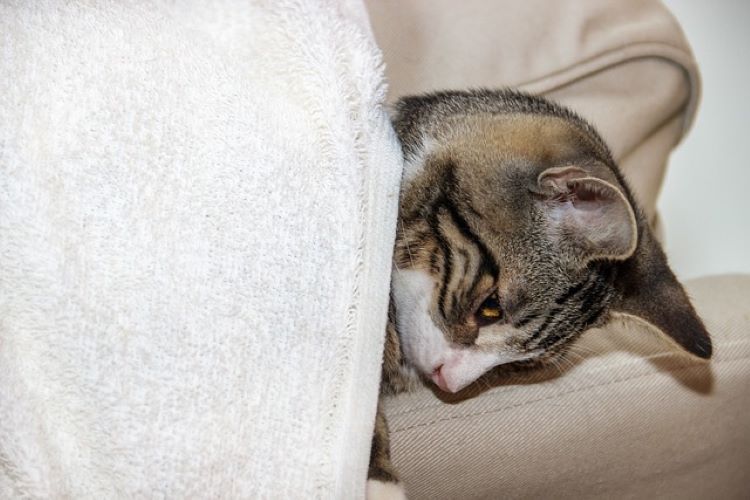
How to Recognize the Signs of a Sick Cat
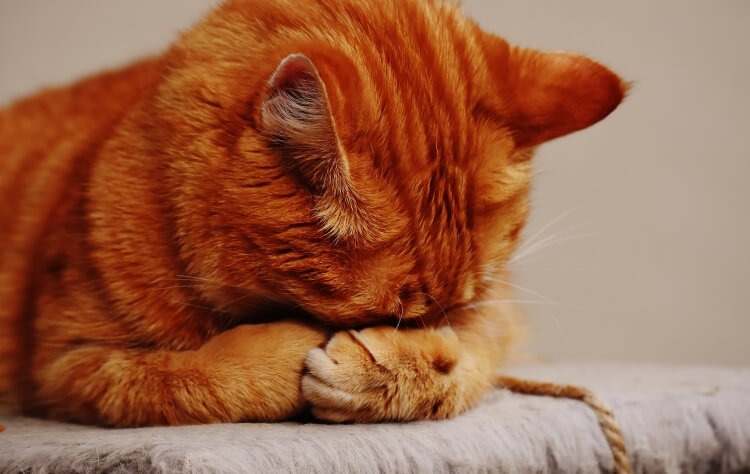
5 Common Health Issues in Cats and How to Prevent Them
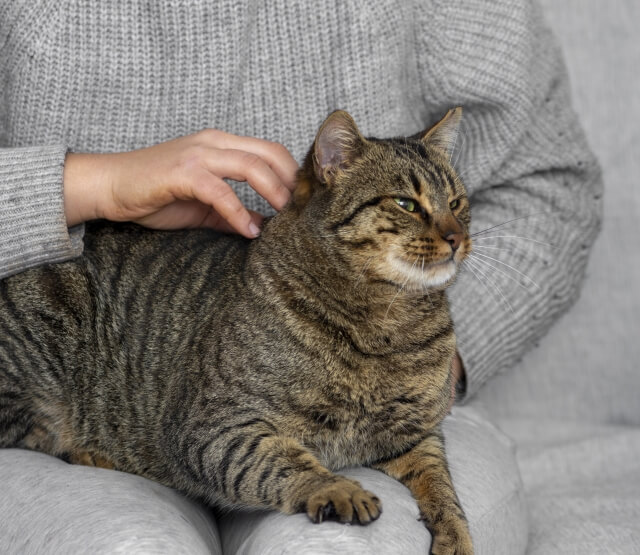
The Connection Between Your Cat’s Weight and Their Health

The Dangers of Fleas and How to Protect Your Cat
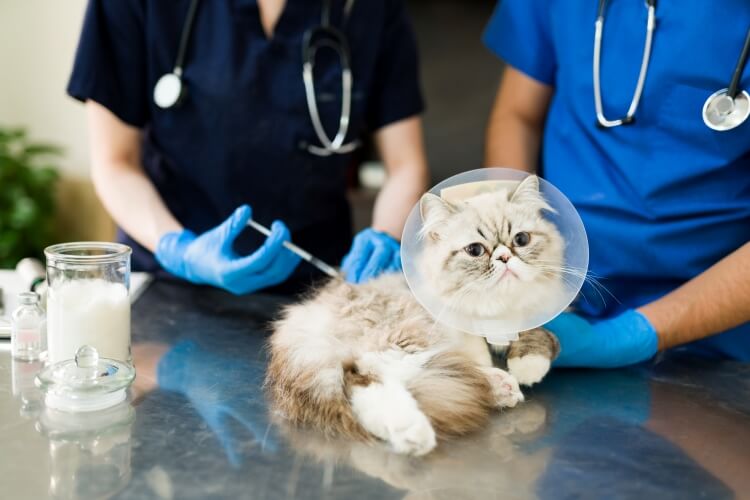
The Importance of Regular Vet Check-ups for Your Furry Friend
